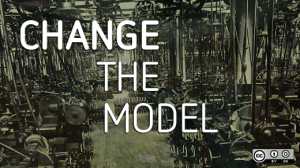 “I’d rather not predict,” US Democratic strategist James Carville once said, “I’d rather affect.”
“I’d rather not predict,” US Democratic strategist James Carville once said, “I’d rather affect.”
Seeing as the only thing I’m affecting between Christmas and New Year is a large cake tin and a box of celebrations I’ll be ignoring the man who helped put Clinton in the White House.
But first here’s a few things I predicted 2013 would have in store for us in my corner of local government communications on my own blog in 2012.
For those who’d like to point and laugh here is my 2011 predictions too for 2012
The ones that came off…
Comms teams have been becoming smaller. The recent comms2point0 survey revealed to 31 per cent thinking their team would shrink as against 19 per cent who thought they would grow.
Twitter defamation lawyers4u will become a reality. Partly true. The Speaker’s wife Sally Bercow settled in the High Court over a defamatory tweet and action was taken against scores of others. But ambulance chasing hasn’t quite happened yet.
Innovation will wither as spare capacity is cut. True. It’s certainly harder to experiment in a far smaller team just as the need for experimentation has increased.
The private sector has been better at innovating in digital comms. They’ve the budget and the will. But this doesn’t always mean private is better than public in all cases. They have different decision making processes.
 Social media box ticking needs to be guarded against. True. “We need Twitter,” is replacing “we need a press release,” as the non-comms call to action. No you don’t. Not all the time any way.
Social media box ticking needs to be guarded against. True. “We need Twitter,” is replacing “we need a press release,” as the non-comms call to action. No you don’t. Not all the time any way.
The LGA-backed localgov digital project is a good idea whose time has come. Is bang on the money and chair Carl Haggerty winning a digital leadership award at The Guardian awards proves this.
Social media is fracturing. Is true. While 10 platforms were mentioned in the 2012 comms2point0 poll it now stands at 30 in the same poll a year later.
The ones where it’s too early to tell…
Smart comms people will realise that channel shift may the reason they survive. The jury is still out although it’s fascinating to hear some case studies where people have been experimenting with this.
People will see social media isn’t a golden bullet. People are gradually waking up to the idea that while this is important it’s part of the mix and a Facebook page on its own won’t change the world.
Digital comms specialists are needed. Skills need to be developed and shared.
The one that didn’t…
Facebook as a local government platform is over. There are some god ones but with fewer and fewer people seeing updates from pages it is no longer the wunderkind. Give this one time.
10 predictions for local government digital comms in 2014…
 There will be more shared comms teams. People will look at how this can work across a geographical area and also between authorities.
There will be more shared comms teams. People will look at how this can work across a geographical area and also between authorities.
Teams will continue to get smaller. The ones that fail to grasp the nettle and look at what they are doing will wither.
Heads of comms will become fewer. As a result of the first two.
Better evaluation is needed. The 1980s idea of story counts and positive, negative and neutral need to go. Now. What will replace will be shaped by results. Like channel shift or user growth targets. Failure to do this will see teams become irrelevant.
Local government comms will become the poor relation of public sector PR. With training budgets gone, workloads increasing teams will struggle to do the basics without major recalibration.
Digital will continue to mainstream. But the digital specialist will need to be a jack of all trades and must be able to shape content for all manner of platforms – from the village magazine to YouTube to Twitter to a press release and web content.
Teams will be outstripped by the pace of change. When revolution is needed slow evolution will be allowed to occur.
Digital comms will step up a gear from simply tweeting press releases to tackling the really thorny problems. In local government these insoluble issues are called ‘wicked issues.’
Digital comms will continue to be a frontline officer task. Giving people the tools in the field will continue. Policy and training will need to come from the centre as the role of digital comms becomes part of all areas and not just a specialist.
There will be a major emergency in 2014 where digital comms plays a decisive role. And they’ll do a good job and more people will see the worth. But senior officers will still roll their eyes.
Teams will need content creators. Not press officers.
Teams that overlook internal communications – and in particular telling their own story internally – will suffer.
Picture credits
Change the model http://www.flickr.com/photos/opensourceway/4554851174/sizes/o/
Learn or retire http://www.flickr.com/photos/blairpeterson/5743993819/sizes/o/
Share http://www.flickr.com/photos/carlos_maya/5165377895/sizes/l/




Nice post. Thanks for sharing your interesting insights.